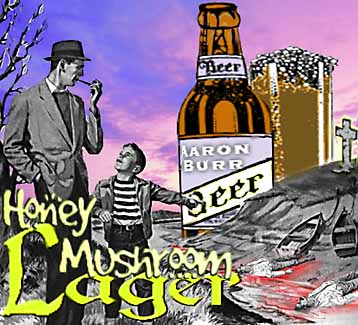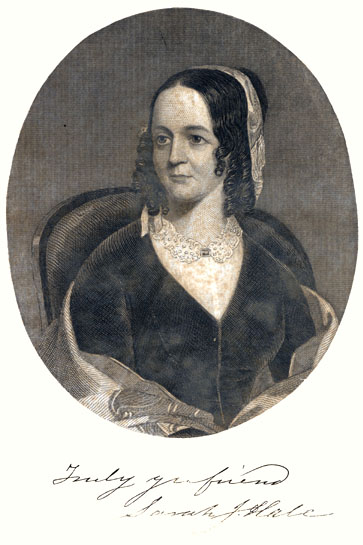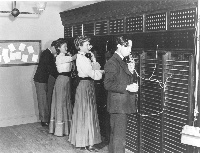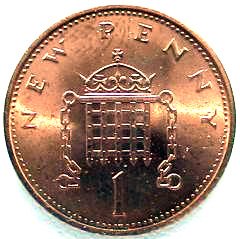NAVIGATION COLUMN
Home Page
The Keninger Archives
The Propagander
Yahoo Groups:
History 1 Day 2
Nuremburg Data
Daily History Pages:
In Calendar Form
FAIR USE NOTICE: This site could contain copyrighted material the use of which has not always been specifically authorized by the copyright owner. We are making such material available in our efforts to advance understanding of historical, political, human rights, economic, democracy, scientific, environmental, and social justice issues, etc. We believe this constitutes a 'fair use' of any such copyrighted material as provided for in section 107 of the US Copyright Law. In accordance with Title 17 U.S.C. Section 107, the material on this site is distributed without profit to those who have expressed a prior interest in receiving the included information for research that could include educational purposes. If you wish to use copyrighted material from this site for purposes of your own that go beyond 'fair use', you could most likely need to obtain permission from the copyright owner.
|
September 1

0891 Arnulf defeats the Vikings from Scandinavia at the battle of Louvain in Belgium.
1159 Death: Pope Adrian IV, originally Nicholas Breakspear; the only Englishman to be Pope, a post he assumed in 1154.
1267 Ramban (Nachmanides) arrives in Jerusalem to establish a Jewish community.
1494 Charles VIII of France invades Italy in an attempt to claim the throne of Naples.

1557 Death: Jacques Cartier, French explorer.
1614 Vincent Fettmich expels all Jews from Frankfurt-on-Main, Germany.
1646 The Cambridge Synod of Congregational Churches convenes in Mass. It formulates the 'Cambridge Platform,' outlining the proper polity (religious government) to be followed by the New England Congregational churches.

1648 Death: Marin Mersenne, French mathematician, aged 59.

1666 The Great London Fire begins in Pudding Lane. By the time it is under control, 80% of London will be destroyed.

1676 Bacon's Rebellion: Nathaniel Bacon leads an uprising against English Governor William Berkeley at Jamestown, Virginia, resulting in the settlement being burned to the ground.

1715 Death: Louis XIV, called the 'Sun King', (1643-1715), in Versailles, after reigning as king of France for 72 years.

1772 The Mission, San Luis Obispo de Tolosa, is formed in California.

1773 Phillis Wheatley, a slave from Boston whose talents will influence America's Founding Fathers (Washington, for one, was 'stunned' by her intellect upon making her acquaintance), publishes a collection of poetry, Poems on Various Subjects, Religious and Moral, in London.

1789 Birth: Lady Marguerite Blessington [nee Power], Countess of Blessington, Irish-born English socialite and author. She will lead a dazzlingly extravagant lifestyle, will be painted by Thomas Lawrence (above), and will take to writing when her husband looses his fortune. Note: Her Journal of Conversations with Lord Byron 1832 is still valuable for the light it sheds on the poet's personality and ideas.
1795 Birth: James Gordon Bennet, editor of the New York Sun, the first tabloid-sized daily newspaper.
1799 The Bank of Manhattan Company opens in New York City. Note: The bank is a forerunner of Chase Manhattan.

1807 The Strange Story Of Aaron Burr continues as the former VP, who once shot Founding Father Alexander Hamilton to death in a duel, is arrested in Mississippi for complicity in a plot to establish a Southern empire in portions of Mexico and the Louisiana Territory, with New Orleans as the capital of his new domain.
1810 John J. Wood patents the first plow with interchangeable parts.

1821 William Becknell leads a group of traders from Independence, Missouri, toward Santa Fe on what will become the Santa Fe Trail.

1830 Sarah J. Hale, essayist and publisher of a popular magazine, publishes her nursery rhyme, Mary had a little lamb.
1836 Reconstruction begins on the Synagogue of Rabbi Judah Hasid in Jerusalem.

1838 Death: William Clark, 2nd lieutenant of Lewis and Clark Expedition, at 68.

1849 Birth: Elizabeth Harrison, US educator (Natl Congress of Parents & Teachers).
1849 The California Constitutional Convention is held in Monterey.
1858 The East India Company's government of India ends with the British crown taking over its territories and duties.
1858 The first transatlantic cable fails after less than one month.

1859 Richard C. Carringtonas engaged in his daily monitoring of sunspots, when he notices two rapidly brightening patches of light near the middle of a sunspot group he is studying (indicated by A and B on the drawing above). In the following minutes the patches dim again while moving with respect to the active region, finally disappearing at positions C and D. This unusual event is also independently observed by R. Hodgson (1804-1872), another British astronomer. This serendipitous observation represents the first clear description of a solar flare, corresponding to a sudden and intense heating of solar atmospheric plasma caused by reconnection of magnetic fields. What Carrington observed would today be called a two-ribbon flare.

Though they are readily seen in X-rays, only the largest flares are bright enough to be seen in visible light. Both Carrington and Hodgson noted that magnetic monitoring instruments registered strong disturbances at about the same time, but it is not possible to tell for sure whether these were due to the flare they actually saw. It is more likely that they were caused by other generalized solar disturbances of which the flare was but one manifestation.
1859 The Pullman sleeping car, built by George Pullman's company with help from Ben Field, is put into service.
1864 The Charlottetown Conference begins on Prince Edward Island, representing the first steps toward Canadian confederation.
1864 US Civil War: Confederate forces under General John Bell Hood evacuate Atlanta in anticipation of the arrival of Union General William T. Sherman's troops.
1865 Joseph Lister performs the first antiseptic surgery.
1870 Franco-Prussian War: The French under Napoleon III are heavily defeated by the Prussians under Moltke at the battle of Sedan. It is the last battle of the Franco-Prussian War as this defeat opens the path to Paris and places Bismark's Reich at the very forefront of European powers.

1870 Franco-Prussian War: Napoleon III is captured at Sedan.

1875 Birth: Edgar Rice Burroughs.
1876 The Ottomans inflict a decisive defeat on the Serbs at Aleksinac.

1878 Emma Nutt (I'm not making this up) becomes the first woman telephone operator when she goes to work for Edwin Holmes and his Telephone Dispatch Company in Boston, Massachusetts.
1882 The first Labor Day is observed in New York City by the Carpenters and Joiners Union.
1887 Emile Berliner files for a patent for his invention of the lateral-cut, flat-disk gramophone. It is better known as the record player. Emile got the patent, but Thomas Edison got the notoriety; for making it work.
1894 By an act of Congress, Labor Day is declared a national holiday.
1900 Boer War: South African Republic (SAR) (Transvaal Republic) is annexed by Britain when a proclamation to that effect is issued by Lord Roberts.
1902 The Austro-Hungarian army is called into the city of Agram to restore the peace as Serbs and Croats clash.

1905 Alberta and Saskatchewan become the 8th and 9th Canadian provinces.
1906 Papua is placed under Australian administration.
1914 The Russian city of St. Petersburg changes its name to Petrograd.

1914 Death: Martha, at Cincinnati Zoo; last known passenger pigeon.

1914 WW1: Adolf Hitler is transferred to I Company, 16 Bavarian Infantry Regiment. (Maser)
1915 WW1: Germany announces cessation of unlimited submarine warfare. The Germans, fearing U.S. involvement in the war on the side of the Allies, agrees to pay indemnities and guarantees that submarines will not sink passenger liners without warning.
1916 The Keating-Owen Act (child labour banned from interstate commerce) Is enacted in the US.
1917 WW1: General Oscar von Hutier's Eighth Army attacks Riga, northern anchor of the Russian front. As a holding attack on the west bank of the Dvina River threatens the city, three divisions cross the river to the north on pontoon bridges, encircling the fortress, while exploiting elements pouring eastward. The Russian Twelfth Army flees, and a small German amphibious force occupies Osel and Dago islands in the Gulf of Riga. The German victory at Riga leaves Petrograd unprotected.

1918 Volkishness: Another Germanenorden meeting is held at the Four Seasons Hotel. Johannes Hering's diary records frequent meetings after this date and the lodge is convoked at least once a week for investitures, lectures and excursions. Since its ritual activities are supplemented by overt right-wing meetings, the term Thule Society has been adopted as a cover-name to spare it the unwelcome attention of socialists and pro-Republican elements. The rooms are decorated with the Thule emblem showing a long dagger superimposed over a shining swastika sunwheel. (Roots)
1918 Russian Revolution: US troops land in Vladivostok, Siberia, and stay until 1920.
1922 Birth: Melvin R. Laird (Rep-R-Michigan), US Secretary of Defense (1969-73).
1922 A New York City law requires all pool rooms to change their name to billards.
1923 A magnitude 7.9 earthquake strikes Japan completely destroying Yokahama and nearly destroying Tokyo. At least 142,000 people are killed and 2.5 million made homeless.
1923 Sept 1-2 Ludendorff announces his support of Adolf Hitler before 100,000 people at German Day at Nuremberg. Hitler, who also attends, takes part in the formation of the German Kampfbund with other far-right groups. (Maser)
1928 Albania is declared a kingdom, with Zogu I as ruler.
1933 Transfer Agreement: The German government approves the Haavara (Transfer) Agreement with the Jewish settlement in Palestine, enabling the transfer of a small percentage of Jewish capital to Palestine in the form of German goods.

1935 Zionism: Chaim Weizmann becomes president of the World Zionist Organization at the Nineteenth World Zionist Congress in Lucerne.
1938 Birth: Alan Dershowitz, attorney, author.
1938 Hitler demands the immediate cession of Czechoslovakia's Sudetenland to Germany.
1938 The Italian government orders all Jewish residents who settled in the country after 1919 to leave the country within six months or be deported.

1939 WW2: World War Two begins as the German battleship Schleswig-Holstein on a "good will visit to Gdansk" opens fire on the Polish fort at Westerplatte.

An hour later German forces pour across the 1,500-mile Polish-German border. At 4:45 a.m Lieutenant Wladyslaw Gnys of 2 Krakow Air Regiment shoots down two Dornier 17 Bombers--the first air kills of the war.

1939 WW2: 4:45 AM, German troops cross the Polish frontier. The German military machine strikes in what is known as a Blitzkrieg (lightning war). High-speed panzer (tank) units blast holes in the Polish lines. Luftwaffe (air force) bombers destroy the Polish air force on the ground, damage communications lines, and prevent the Poles from moving reinforcements, supplies, and ammunition to the front, while German motorized units and footsoldiers quickly move forward to capture and hold the conquered ground. In all, 53 German divisions take part in the attack.
1939 WW2: Mussolini proposes a suspension of hostilities and the immediate convening of a Conference of the Big Powers, Poland included, to discuss terms for a peaceful settlement. Germany, France and Poland immediately accept Mussolini's proposals. Britain categorically rejects any negotiations and demands withdrawal of German troops from all occupied Polish territory (30 kilometers deep). Note: Britain does not consult with Warsaw before making its decision.

1939 WW2: Hitler's speaks before the Reichstag: "At the same time I should like here to declare that this political decision means a tremendous departure for the future, and that it is a final one. Russia and Germany fought against one another in the World War. That shall and will not happen a second time. In Moscow, too, this pact was greeted exactly as you greet it. I can only...."
1939 WW2: Gauleiter Albrecht Foerster proclaims an anschluss (union) of Danzig with Greater Germany.
1939 WW2: Osborne, British Ambassador at the Vatican, reports to Lord Halifax that he had suggested to Papal Secretary of State Luigi Maglione that publication of the last-minute unsuccessful peace appeal of Pope Pius XII be accompanied by an expression of regret that the German government, despite the Papal appeal, has plunged the world into war. Maglione, he says, has turned down this request as too specific an intervention into international politics. (Lewy)
1939 WW2: The Euthanasia Decree, which will not actually be written until October, is predated to go into effect on this date in Greater Germany. This decree orders that all Germans with incurable diseases are to be killed in order to free up needed hospital space and eliminate "useless eaters."
1939 WW2: An 8 PM curfew is established for all German Jews.
1939 WW2: Britian bans television for the duration of the coming conflict. The ban will not be lifted until 7 years have passed. Note: At this time there are only a mere 2,000 TV sets in GB.

1940 WW2: Horia Sima broadcasts a demand for the abdication of Romania's King Carol.
1941 Holocaust: A new decree is issued ordering that all Jews are forbidden to leave their place of domicile without special permission; Jews six years of age or older can now appear in public only when marked with a Jewish star (Star of David). This decree covers so-called Mosaic Jews as well as baptized Jews. Only those who had converted to Christianity prior to September 15, 1935, the date of the Nuremberg laws, and "non-Aryans" married to an "Aryan" partner are exempted. Note: The marking of Jews had first been applied to Jews in Poland, but is now extended to the entire Reich.
1941 WW2: Lord Beaverbrook, a leading Conservative member of Churchill's government, writes to Rudolf Hess requesting a meeting. Beaverbrook on this same day is appointed to head a Cabinet mission to Moscow to discuss aid for the Soviets. (Missing Years)
1941 WW2: Germans troops come within artillery range of Leningrad (or St. Petersburg or Petrograd or St. Petersburg, depending).
1942 WW2: German troops reach the outskirts of Stalingrad (or, er...never mind...).
1942 SS Dr. Johann Paul Kremer's Auschwitz Diary: "Wrote off to Berlin for officers' cap, belt, suspenders. In afternoon attended block gassing with Zyklon B against lice."
1942 WW2: A federal judge in Sacramento, CA, upholds the wartime detention of Japanese-Americans as well as Japanese nationals.
1944 The Warsaw Uprising: The AK (Polish Home Army) evacuates Warsaw's Old Town. Some 4,000 men escape into sewers down which the Germans, who have been killing as many Poles and Jews as possible for exactly 5 years, pour poison gas.
1945 The U.S. receives official word of Japan's formal surrender. Note: In Japan, it is actually September 2nd.
1946 Greeks vote to recall King George II to the throne. Note: He had been living in exile in England.
1948 Chinese Communists form the North China People's Republic.
1948 The UN World Health Organisation is formed.
1950 West Berlin is granted a constitution.
1951 The US, Australia and New Zealand sign the ANZUS treaty.
1960 Julius Nyerere becomes Tanganyika's prime minister.
1961 The USSR tests a series of nuclear devices in central Asia.
1962 The UN announces that the planet Earth has a human population of 3 billion.
1967 An Arab summit lifts the oil embargo on Western states imposed during the Six-Day war.
1969 Military officers overthrow the Libyan government and King Idris, and Colonel Moammar Gadhafi comes to power.
 
1971 The British penny and the threepenny piece coins cease to be legal tender as decimalisation continues.
1971 Qatar declares independence from Britain.
1972 US chess player Robert "Bobby" Fischer defeats Soviet player Boris Spassky in Reykjavik, Iceland, becoming the first US player to officially win the World Chess Championship. Fisher's unusual demands during tournaments, off-the-board antics, and unexplained forfeiture of his world title bring him a notoriety uncharacteristic of most chess champions, who tend to be a stolid, conservative type.
1974 Anastasio Somoza is elected president of Nicaragua.
1982 A maximum speedometer reading of 85mph is mandated in the US.
1982 The PLO leaves the Lebanon.
1983 Korean Air Lines (KAL) Flight 007, in route to Seoul, Korea, from New York City, is shot down by a Soviet plane, killing all 269 people on board. The KAL flight reportedly strayed more than 100 miles off course, flying over secret Soviet military bases. Debate continues today as to why the airliner was so far off course. Note: Tae Kwon Do Master Hyong Ung Hong was one of the people who died in the air disaster.
1985 The Titanic is found by Dr. Robert Ballard and Jean Louis Michel in a joint U.S. and French expedition. The wreck site is located 963 miles northeast of New York and 453 miles southeast of the Newfoundland coast.
1990 Czechoslovakia and the Soviet Union sign the first agreement between Comecon countries to conduct their trade in convertible currencies and use world prices.
1995 Chief warlord Charles Taylor and other key militia leaders are installed in a new ruling council in Liberia.
1998 Vietnam releases 5,000 prisoners, including political dissidents, on National Day.
2002 British PM Tony Blair flys into the Mozambique capital, Maputo, warning fellow world leaders there could be "no back-sliding" at the Earth Summit.

2002 US President George W Bush with the 89th Military Police Brigade at Ford Hood, Texas.
2002

2004

2004

2004

^ Top of Page ^
Click Here to email the Webmaster of this site.
Web Page Design by Nathan
This page was last updated on September 4, 2005
|
